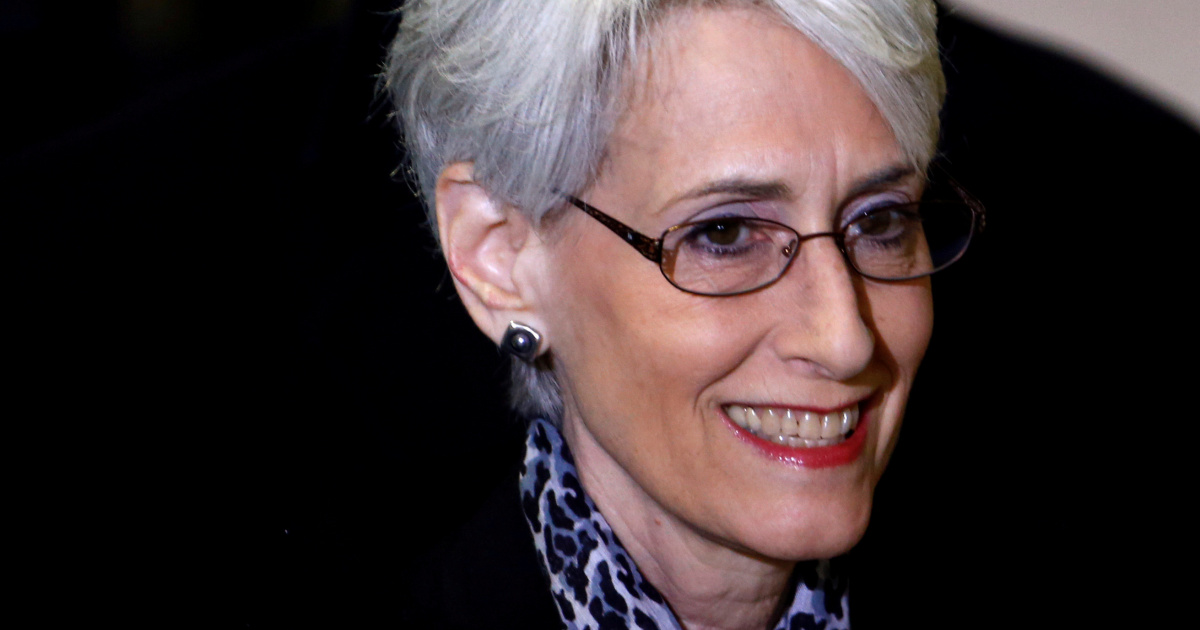Senior US diplomat to visit China amid growing tensions
Deputy Secretary of State Wendy Sherman’s trip comes amid nearly daily new rifts between the two powers including over human rights and cybersecurity.
Deputy Secretary of State Wendy Sherman will travel to China this weekend on a visit that comes as tensions between Washington and Beijing soar on multiple fronts, the State Department said.
Sherman will meet Chinese Foreign Minister Wang Yi and others in the northeastern city of Tianjin on Sunday as part of her current trip to Asia, which also is taking her to Japan, South Korea and Mongolia. She will later visit Oman.
“These discussions are part of ongoing US efforts to hold candid exchanges with PRC officials to advance US interests and values and to responsibly manage the relationship,” a State Department statement said on Wednesday, referring to the People’s Republic of China.
“The deputy secretary will discuss areas where we have serious concerns about PRC actions, as well as areas where our interests align,” it said.
Sherman will be the highest-ranking US official to visit China since President Joe Biden took office, although Secretary of State Antony Blinken and National Security Adviser Jake Sullivan met Wang and veteran Chinese diplomat Yang Jiechi in Anchorage, Alaska, in March for what proved to be a contentious first exchange.
Sherman’s visit to China follows a significant deterioration in already badly strained US-China ties in just the past two weeks.
Secretary of State Antony Blinken and Jake Sullivan, Biden’s national security adviser, met in March in Alaska with Wang as well as top official Yang Jiechi in a visibly tense meeting [File: Frederic J Brown/Pool/Reuters]
Senior US officials would not confirm suggestions that the Chinese had initially offered only lower-level officials for Sherman to meet.
But they said the Biden administration would not have agreed to the visit unless they were assured Sherman would be able to see top-ranking officials in person.
The officials were not authorised to preview the trip publicly before Wednesday’s formal announcement and spoke on the condition of anonymity.
The officials said Sherman’s agenda would be wide-ranging and cover areas of contention, as well as a smaller set of areas of convergence, such as a mutual desire to bring North Korea back to the negotiating table for nuclear talks.
Hacking allegations
The US on Monday publicly accused Beijing of carrying out the massive hack in March of Microsoft Exchange and issued a business advisory warning of risks in Hong Kong.
China denounced what it called a “fabricated” campaign by the US which rallied allies including NATO for a rare joint condemnation on purported cyberattacks.
Last week, the US issued separate stark warnings against transactions with entities that operate in China’s western Xinjiang region, where China is accused of repressing Uighur Muslims and other minorities.
The administration also advised American firms of the deteriorating investment and commercial environment in Hong Kong, where China has been cracking down on democratic freedoms it had pledged to respect in the former British colony.
At the same time, the administration reaffirmed a Trump-era policy shift that rejects nearly all of China’s significant maritime claims in the South China Sea and reminded Beijing that any military move against the Philippines in disputed areas would trigger a response under a US-Philippines mutual defence treaty.













